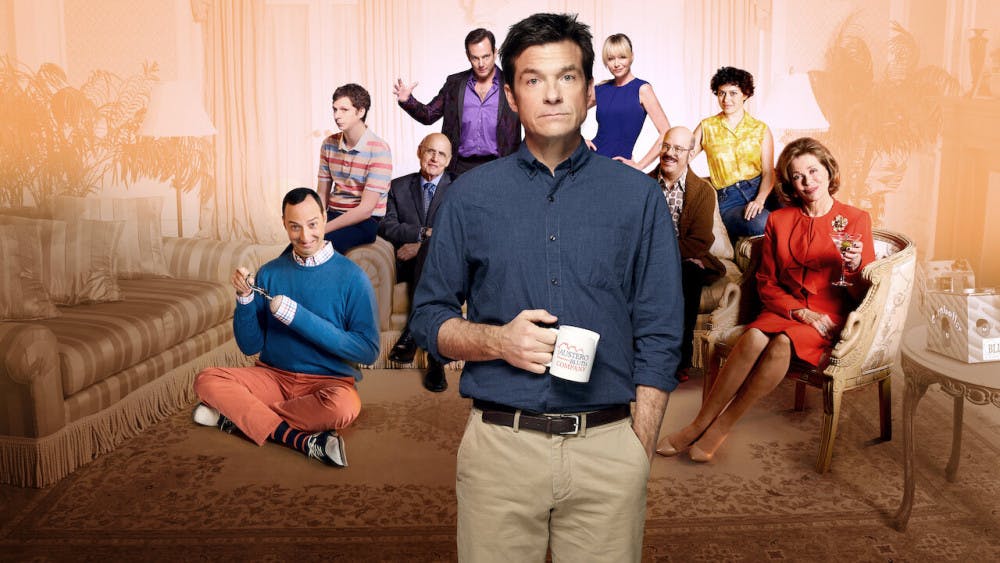By Kaitlyn Bonomo
Staff Writer
Airing on FOX in 2003, “Arrested Development” stands out from the typical set of dysfunctional family sitcoms by crossing lines other shows wouldn’t dare. From cousin romances to prison escapes and magician acts gone wrong, “Arrested Development” portrays chaos that makes any family look normal in comparison.
The show follows the wealthy Bluth family after the arrest of George Bluth Sr. (Jeffrey Tambor), that rips away the family fortune they have no experience living without.
The use of a narrator is generally common in sitcoms, and the inexpressive voice of Ron Howard telling the elaborate lives of the Bluths delivers many of the show’s jokes — a token of “Arrested Development.”
The Bluth family consists of complex characters with conflicting personalities suitable and successful for a sitcom. The show revolves around Michael Bluth (Jason Bateman), who elects himself as the normal one in his family and vows to keep them afloat while his father is in jail.

Lucille Bluth (Jessica Walter), the wife of George Sr. and mother of the Bluth children, shows no pity to anyone and has mentally damaged every member of her family in some way. The Bluth children include Lindsay (Portia de Rossi), Michael’s twin sister who never grew out of her teenage rebellious phase, George Oscar Bluth — also known as Gob (Will Arnett), the oldest Bluth sibling and magician who longs for parent appreciation — and Buster (Tony Hale), the unmistakably youngest Bluth who never escaped the wrath of mother Lucille.
Michael Bluth’s son, George Michael (Michael Cera) has a cringeworthy infatuation with his cousin Maeby Fünke (Alia Shawkat), who’s the daughter of Lindsay and former doctor-aspiring actor Tobias Fünke (David Cross). With a lot of similar names, the Bluth family is a whole lot to unpack, and laugh tracks aren’t necessary when the jokes are built into the characters.
“Arrested Development” features many unforgettable quirks and gags that highlight how iconic the Bluth family is, such as the staircase van, the chicken dance, Lucille 2 and the “Lose Seal” to name a few.
While watching “Arrested Development,” it feels like being in on an inside joke when a gag from season one appears in season three. Creator Mitchell Hurwitz never hesitated to write over-the-top dilemmas for the Bluth family, which will cross any boundaries for things to go their way and hilariously never learn from their mistakes.
“Arrested Development” is essentially the textbook definition of sarcasm and satirical humor — so what went wrong?
Considering the show got away with many low blows and aired in the early 2000s, ableist jokes and racial stereotypes were present in the series that were not OK then and are not OK now? — it is important to recognize and criticize how the show got away with these jokes in order to learn from the past and grow from it.
FOX Broadcasting Network canceled “Arrested Development” in 2006, three seasons into the show’s run under claims of low viewership and ratings. Many fans were sad to see the loss of the immaculate casting, long-running jokes and intricate plotline.
Nonetheless, “Arrested Development” is a show worth watching. The first three seasons remain on Netflix beautifully untouched by the network, where the family dynamic resembles the Gallaghers from “Shameless” and parallels the narcissism in “It's Always Sunny In Philadelphia.”
A unique approach to a sitcom, “Arrested Development” is a cult classic you would not want to miss.







